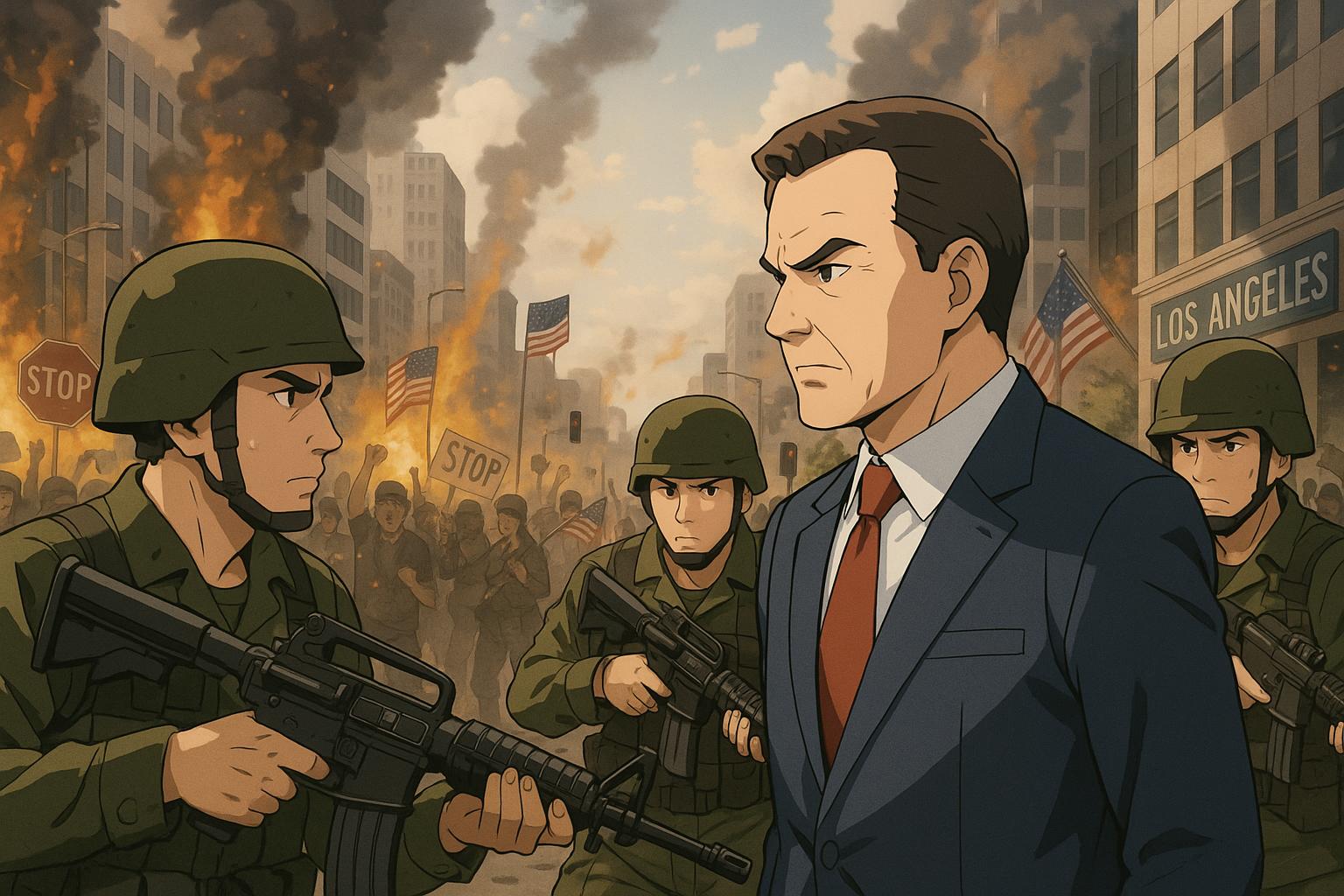Tensions escalated in Los Angeles as California Governor Gavin Newsom publicly condemned President Donald Trump's decision to deploy additional military forces in response to protests against immigration enforcement. In a sharply worded rebuttal, Newsom labelled Trump "deranged" for ordering the presence of 5,000 National Guard troops and 700 Marines without the governor’s consent. This unprecedented move, described as an overreach of federal power, highlights the deepening political schism between the governor and the Trump administration amidst ongoing unrest in the city.
On June 10, roughly 2,000 additional National Guard troops were mobilised to assist Immigration and Customs Enforcement (ICE) in conducting immigration raids, escalating their role from merely securing federal properties to directly impacting local communities. The move follows weeks of rising public unrest after a series of federal immigration sweeps led to protests that included clashes and over 100 arrests. Critics of the deployment argue that it stirs further unrest rather than alleviating it. Local officials, including Los Angeles Mayor Karen Bass, have contended that the existing law enforcement capabilities are sufficient to manage the situation without military intervention.
Conflicting narratives have emerged regarding communication between Trump and Newsom before the troop deployment. While Trump claimed he had spoken with the governor, Newsom asserted that he had received no such communication. This discrepancy reflects a broader contentious relationship, with Trump previously suggesting that Newsom's handling of the protests warranted arrest. Polls indicate that nearly half of U.S. adults disapprove of Trump's methods in managing the protests, reinforcing the political stakes at play.
Meanwhile, tensions soared as pro-Trump supporters clashed with demonstrators in Los Angeles, leading to confrontations that necessitated police intervention. The federal response, which has included the consideration of invoking the Insurrection Act by Trump himself, has amplified fears of authoritarianism among civil rights advocates. The situation in Los Angeles could serve as a bellwether for how federal-state relationships evolve amid heightened political polarisation over immigration policies and the use of military force in domestic law enforcement.
As protests continue to unfold—culminating in planned nationwide demonstrations dubbed 'No Kings Day'—it is clear that the current crisis over immigration enforcement is not just a local issue but one that resonates deeply across the United States, prompting conversations about civil rights and the role of authority in a democracy.
📌 Reference Map:
Source: Noah Wire Services
